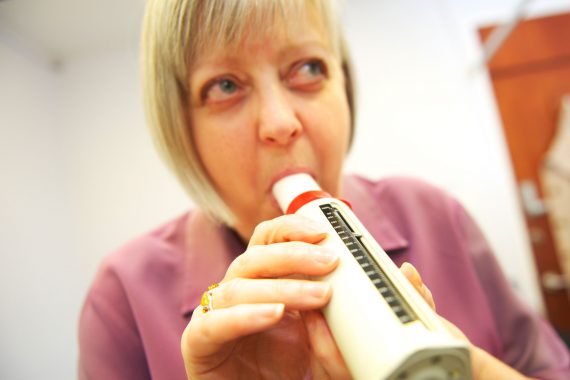Three quarters of COPD cases could be attributed to early-life risk factors, a study has found.
A cohort study has found that the majority of COPD cases could be down to factors such as childhood illnesses and maternal smoking, and that promoting immunisation and reducing levels of smoking in pregnant women are important public health targets for preventing COPD.
The study looked at data from just over 2,400 patients enrolled in an Australian longitudinal study who had had their lung functions tested at regular intervals between the ages of seven and 53 and also had their exposure to different risk factors recorded.
The researchers identified three pathways describing how lung function changed over time that were associated with 75% of all COPD cases in the cohort at 53 years of age. The pathways described those with below average function in early life that declined quickly over time, those with below average lung function and those with persistently low lung function.
They found that the three pathways were associated with childhood respiratory conditions such as asthma, bronchitis, pneumonia and eczema, maternal smoking and the patients smoking themselves, with smoking as an adult and established asthma as an adult aggravating the effect of childhood risk factors.
The researchers suggest that the finding have important public health implications.
They said in the paper: ‘Routine spirometry measurements in school students to identify those with low lung function might help early identification of high risk groups.
‘Although not directly tested, our findings raise the possibility that reducing maternal smoke exposure, encouraging immunisation, and avoiding personal smoking, especially for those with parents who smoke and those with low childhood lung function, would promote healthy lung function trajectories and lessen COPD risk.’
Lancet Respir Med 2018; available online 5th April
Pulse July survey
Take our July 2025 survey to potentially win £1.000 worth of tokens












